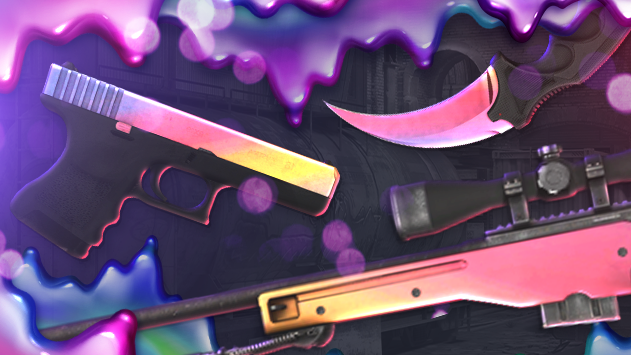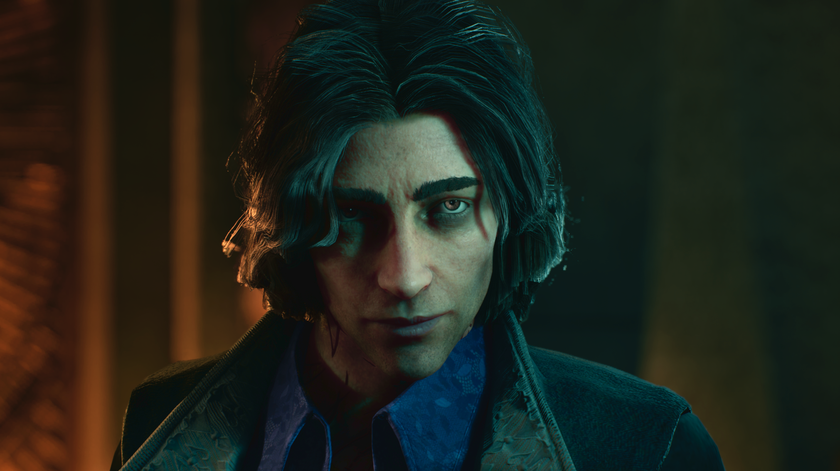Starcraft 2: Heart of the Swarm preview
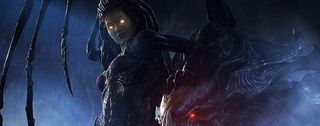
I don't consider myself easily moved. I don't cry at sad movies. I'm a stoic emotional soldier who can sit through the first ten minutes of Pixar's Up without the slightest dampening of the face. I'm tough. So I was most perturbed when I found my throat choked and my skin covered in goosebumps as I stood in front of BlizzCon's StarCraft II: Heart of the Swarm stand. For me 2011 has been a time of discovery, as this year I found StarCraft and, by extension, esports. I found a game that captivated me and a community that epitomises both the best and worst of PC gaming. Chances are, a percentage of you reading these words will feel the same.
At this year's BlizzCon, Blizzard revealed the new multiplayer units for StarCraft II's next expansion, Heart of the Swarm, and I felt like my chest was going to burst with excitement.
StarCraft II is a toolkit. It's a game that provides a hammer for this job, a screwdriver for that one. Each unit has strict rules and looser applications, and that means that players familiar with the game can immediately slot new units into mental replays of the matches they've played and watched. And those new units turn the battlehoned tactics and strategies, hammered out by professionals and amateurs the world over, on their head.
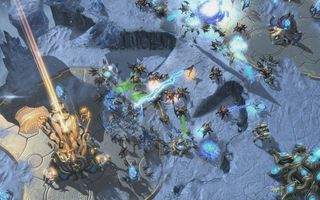
The Zerg's new monsters have the most obvious practicality. The Viper replaces the Overseer, usurping that non-threatening gelatinous eyeball blob with a sinuous sky-snake. Like the Overseer, it can detect cloaked and burrowed units, but unlike the Overseer, it doesn't need to be ported into battle. The Viper can launch a standalone eyeball, gluing it onto another friendly unit. Before, Zerg players had to manoeuvre flimsy gasbags around during tussles so they could get a read on the field: now they can use their combat units as readymade spotters.
But you won't want to be leaving your Vipers at home all the time. They're Zerg spell-casters, their magic books rounded out with 'Blinding Cloud' – a gaseous mass launched at groups of enemies that reduces their effective combat range to spitting distance – and the intriguing 'Abduct'. Abduct is built to break powerful siege lines, letting the Viper yank a single unit out of position with a fleshy tendril.
The Zerg's second new unit is simpler to use. The Swarm Host is essentially a grounded Brood Lord designed to unsettle sufferers of trypophobia – don't Google it, trust me. (Go on, Google it! -Evil Ed). Waddle one near enemy lines and hit R – it'll burrow underground, then start pooping out scurrying, clawed Locusts. It's a siege attack unit that can tear apart enemy defences. Combined with the introduction of the siegebreaking Viper, Terran turtlers in the BlizzCon audience were left making sad little noises.
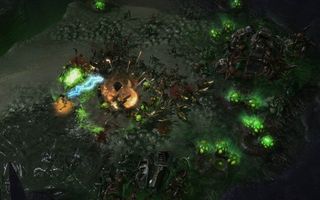
But Terran players have their own new toys to play with. Last year's Wings of Liberty focused on the race; this year's additions feel more like alterations. The Hellion – a speedy ground buggy armed with a straight-line flamethrower – has earned the ability to transform into a spiffy little walker. In battle mode, the Hellion's napalm range and speed are greatly reduced. Instead they gain a much wider spread of flame, and a buff to their toughness. They're great for holding ramps and choke points, as I found out when I was able to tempt a host of Zerglings into the front of my base before barbecuing them in a few wide-angle spurts.
The biggest gaming news, reviews and hardware deals
Keep up to date with the most important stories and the best deals, as picked by the PC Gamer team.
The battle Hellion isn't the Terran's only new stompy thing. Heart of the Swarm will rarify the bipedal Thor walker, doubling the price and only letting players have one on the field at a time. But there are mitigating factors to the switch: the Thor now kicks out damage at a ridiculous rate, and it has earned an understudy. The Warhound has inherited the Thor's anti-air attack – making it perfect for dealing with Zerg Mutalisks – and comes with an anti-armour cannon that punishes the opposition's heavier playthings. They're also smaller, meaning that players won't have to play factory Tetris to avoid a conga-line of walkers stuck on scenery.
Terran generals already have perhaps the game's best territory control options in the Siege Tank and the Bunker – with Heart of the Swarm, they'll be able to add the Shredder to that list. It's a tiny robot that, when burrowed, produces a radioactive death field in a radius around its hidey-hole. Any enemy that sets foot/chitinous claw/floaty energy field inside that space is bathed in a horrible nuclear glow that saps their health. It's ideal for closing off entry routes to your areas of interest, but park one of your own units inside the Shredder's death field and it'll shut itself off.
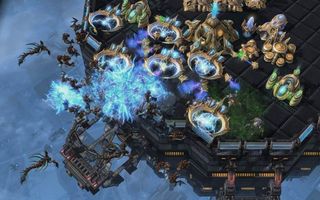
That's no good if you're relying on them for the irradiated death of your foes, but clever leaders could lure armies through 'safe' areas before allowing their little robo-chums to come back online.
If the Terran arsenal changes are all about finetuning, the new Protoss units are about wild experimentation. The mouthless space elves lose their fighter-spewing Carrier unit in multiplayer, but gain a new flyer called the Tempest.
It shoots in both of the game's planes, firing blobs of blue goo that melt light air units like the Mutalisk, and sending an arc of psi-lightning down towards ground targets. Blizzard want Tempests as massed late-game options, and they're a direct response to Protoss complaints that they can't effectively counter large airforces.
Join the battle in the skies, build a Protoss stargate and you'll have access to the new Oracle. It's a flying spellcasting unit that specialises in buggering up your enemy's carefully thought-out timings. 'Phase Shift' lets you scrub a unit out of existence for just under a minute – ideal for removing big nasties from army makeups while you rearrange your forces – and 'Pre- Ordain' allows you to watch an enemy building's surroundings and production for two minutes. As if the floaty pixies didn't have enough scouting options with Observers.
'Entomb' rounds out the Oracle's spell-set, and lets players encase vital mineral patches in weird magic glass, restricting mining from them and halting economies until removed.

That leaves one last new unit, and here's where things gets a little madder. The final Protoss addition is the Replicant: a glowing ball that can turn into almost anything it's pointed at. It's a potentially game-breaking addition: Replicant-heavy Protoss armies have access to three tech trees instead of one, and can create lethal armies of perfectly overlapping units.
But in practice, that's not so simple. When tinkering with the new units in a skirmish game, I tried to saunter into my Zerg opponent's base, cast an eye over their worker Drones, and sashay a copied version back into my own base. But without an escort, my ersatz Drone was popped by a minimal force. I elected instead to send an escort force to get my Replicant in and my new Drone out. I lost my task force, but I was able to gain a Drone. After 15 minutes of climbing up both Protoss and Zerg upgrade routes, my mixed force was able to smash through the solo Zerg's front lines – Zerg Roaches ablating hits as my Protoss High Templars were free to sit back and launch devastating psionic storms.
Heart of the Swarm's new multiplayer units are focused missiles, all introduced as either replacements or new entities to fix issues in the game's asymmetrical matchups. It's the same tactic that Blizzard have used in the singleplayer portions of this game, and in Wings of Liberty before it: units are introduced and shown as fulfilling a specific role.
The key difference is in execution – Heart of the Swarm's singleplayer walks players through the best way to use a new toy; the multiplayer decides you're mature enough to handle things yourself, presses the toolbox into your hands, gives you a wink, and says “have fun”. It's enough to get me all emotional.
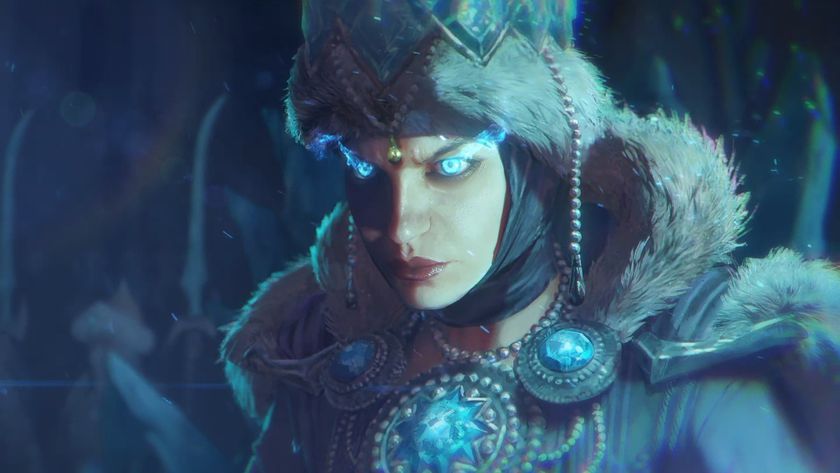

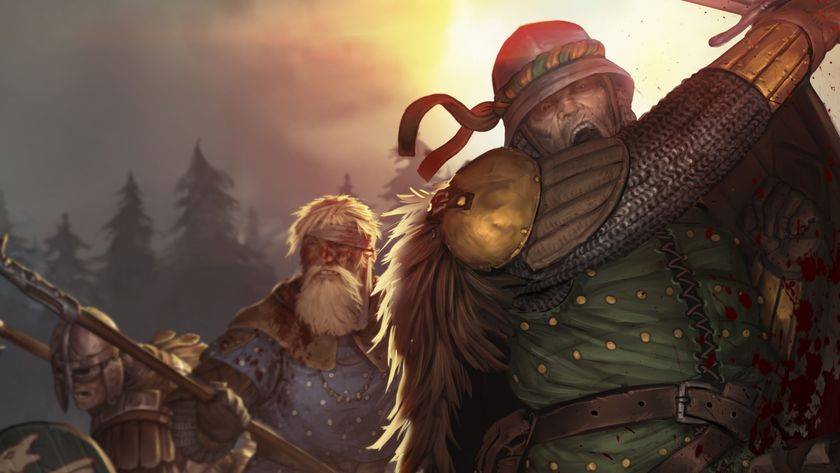
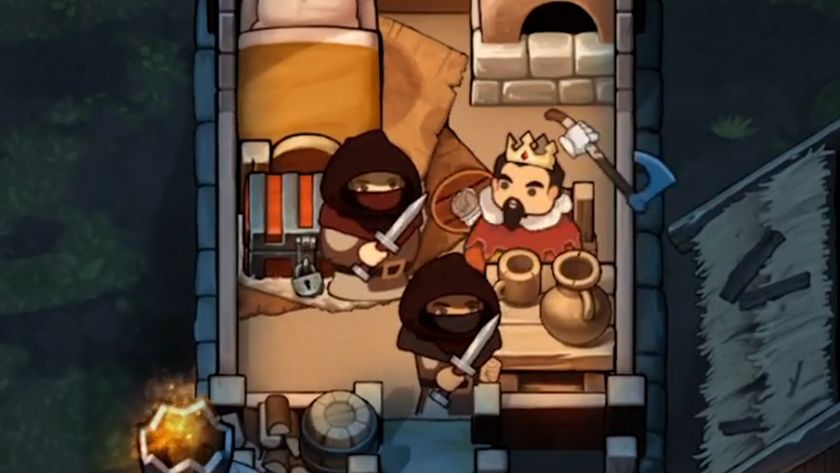
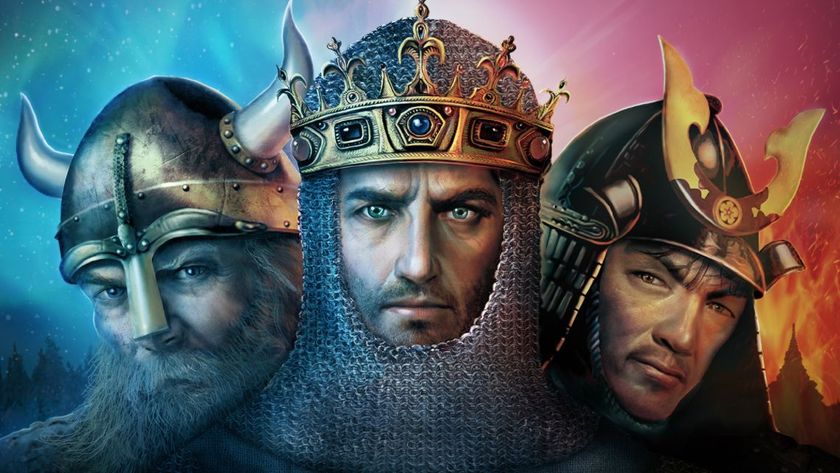
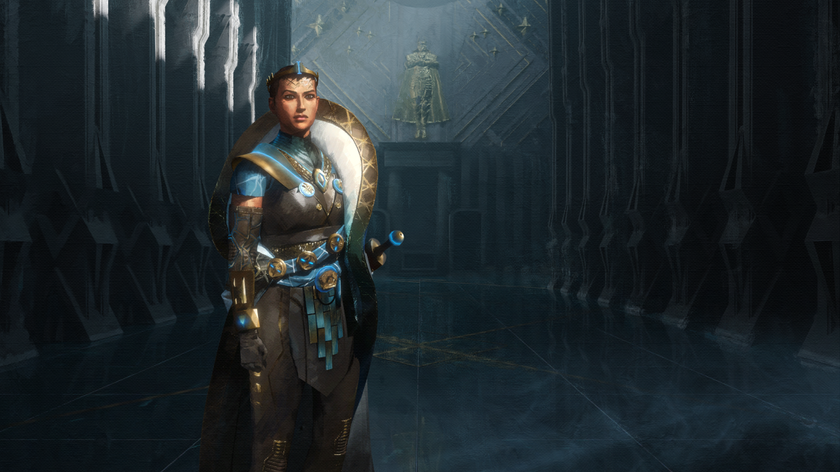
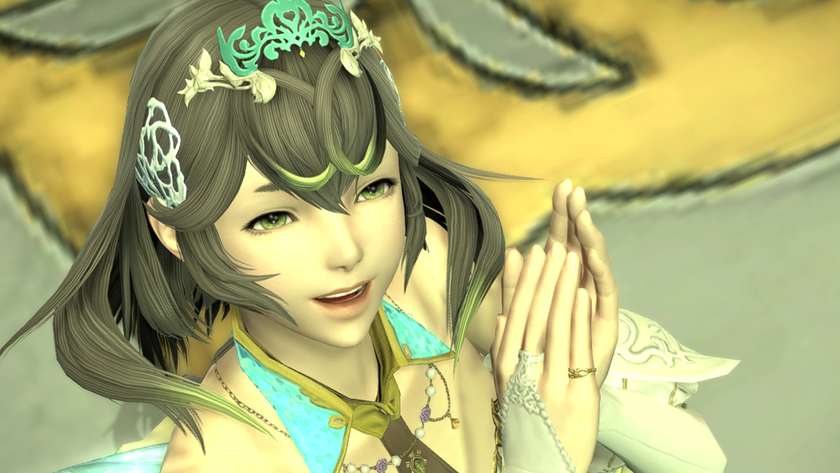


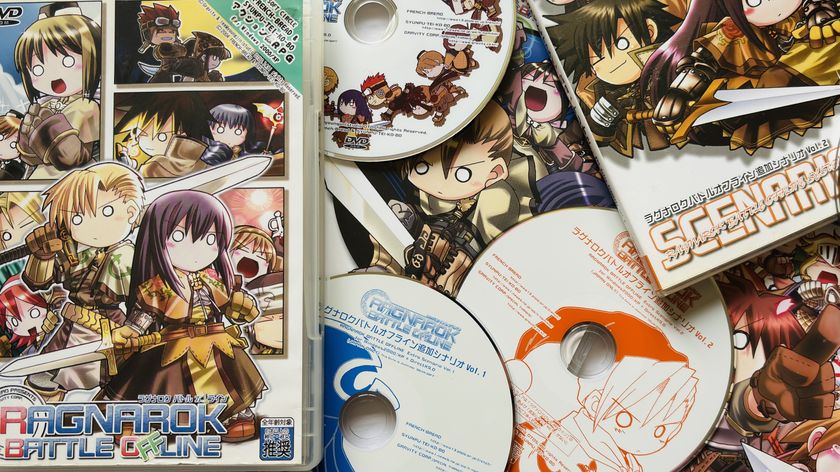
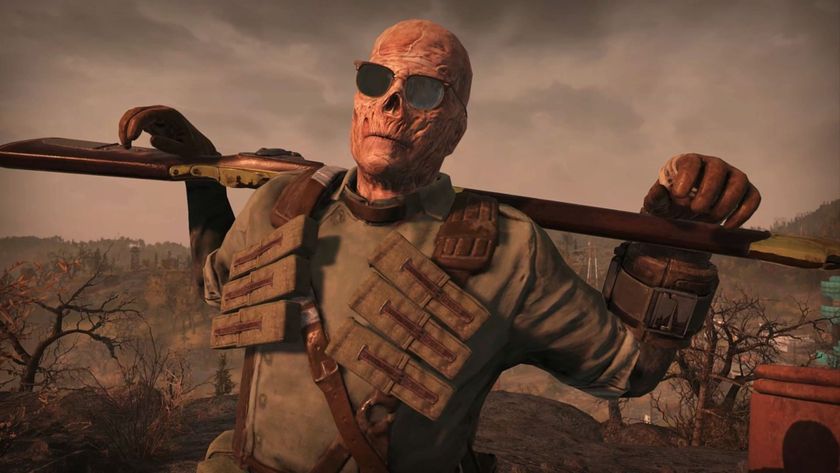
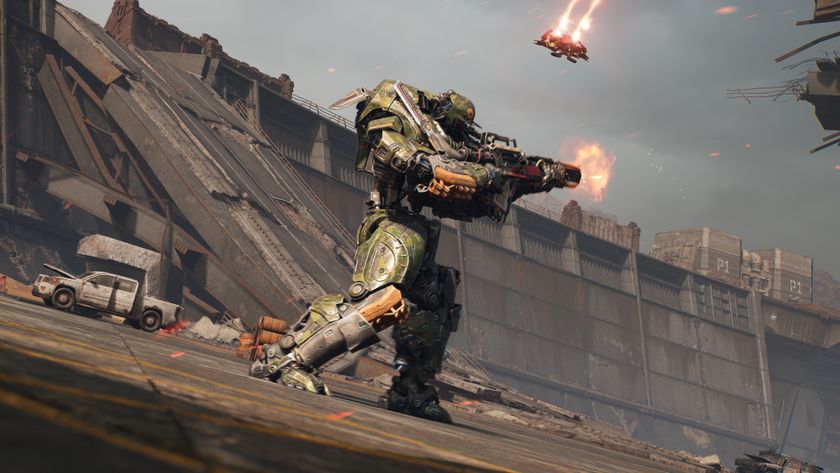

Total War: Warhammer 3 rolls out a cool Kislev overhaul, changes befitting Tzeench’s magic, new projectile units and creakier skeletal horses

As Civilization 7 struggles to keep up with Civ 5 player counts, a new patch is coming tomorrow with still more UI changes and gameplay tweaks

